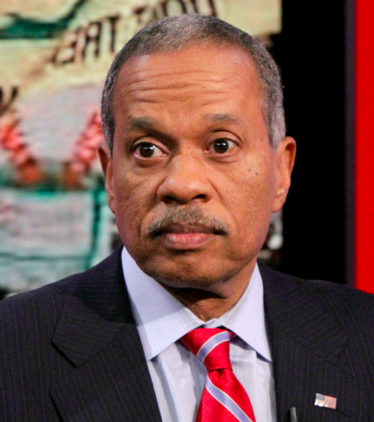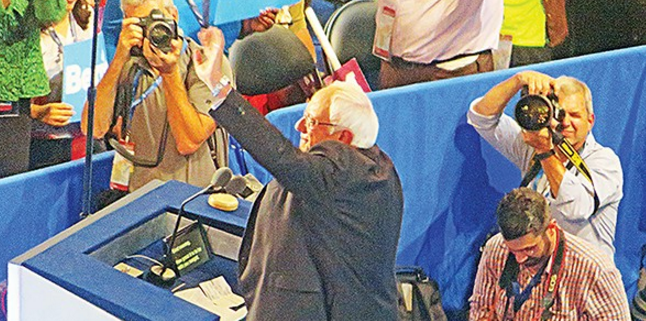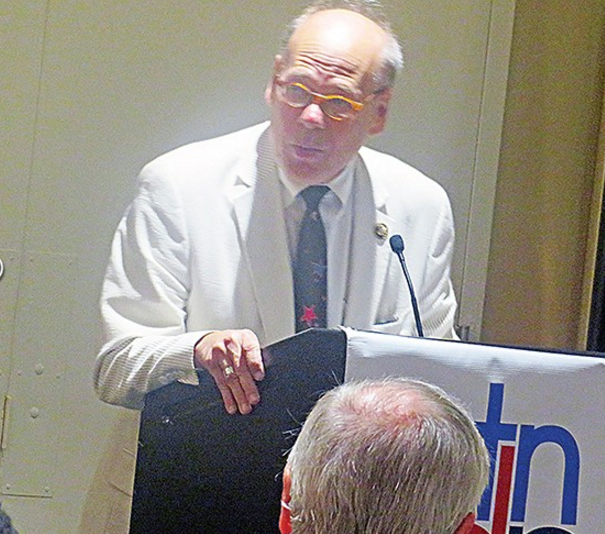Editor’s note: Our political columnist Jackson Baker and former Flyer writer Chris Davis traveled to Chicago, Illinois, last week for the Democratic National Convention from Monday, August 19th, to Thursday, August 22nd. For this story, Baker and Davis reflect on their experiences, giving light to the ever-changing political landscape.
CHICAGO — Let the record show that the second major-party convention of 2024 ended as the first one had — with a firm conviction on the part of its cadres that victory in the November general election was, if not inevitable, then likely. And if not that, at least possible.
That circumstance, ideal from the vantage point of a suspenseful showdown and a spirited turnout, depended largely on events that occurred between the two, the Republican gathering in Milwaukee in mid-July and the Democrats’ a month later.
Those events began with the withdrawal from the race of Democratic President Joe Biden, whose evident infirmities had been amply signaled in an early debate with former President Donald Trump, the Republican nominee.
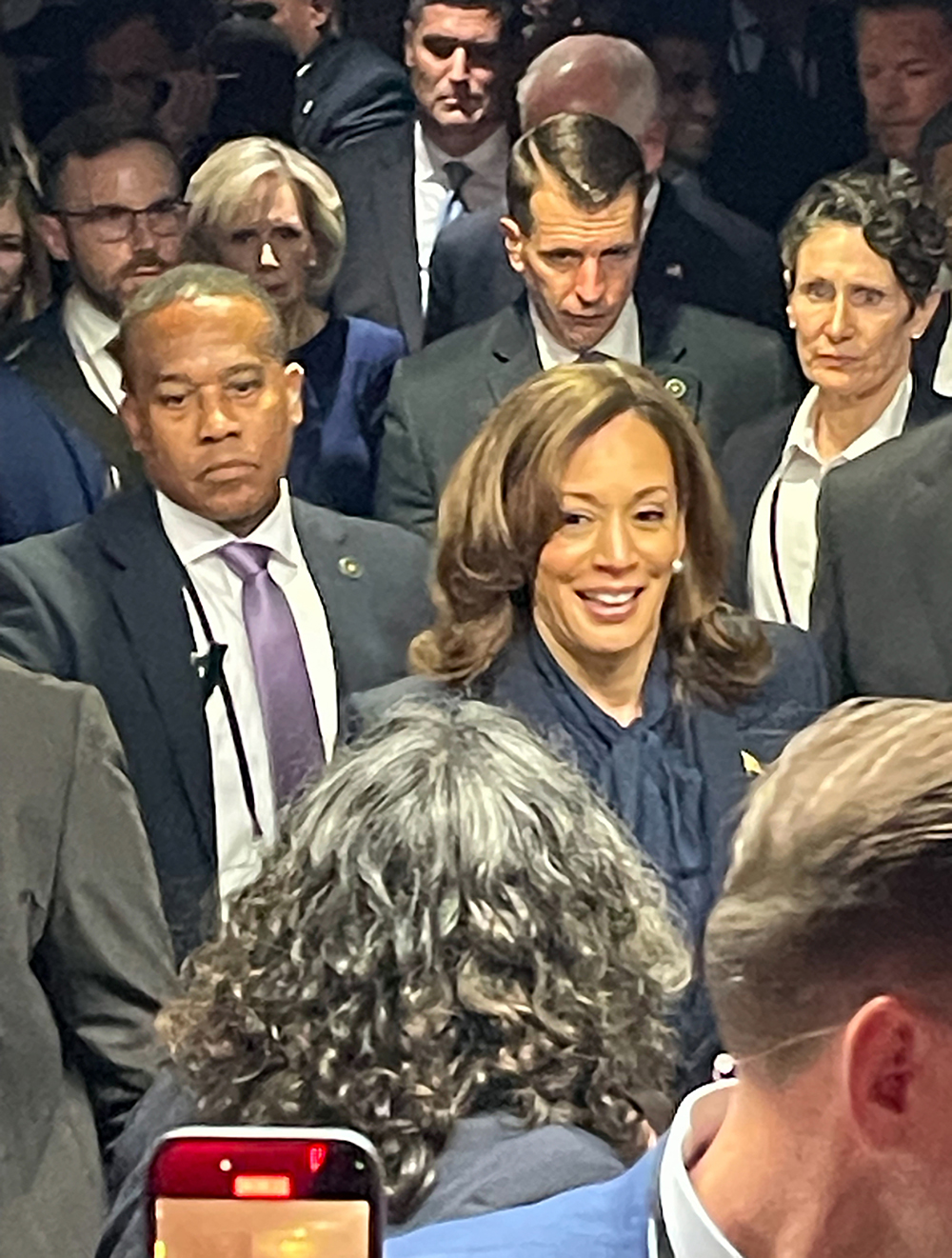
They continued with the substitution of Democratic nominee of Vice President Kamala Harris, as close to her party’s line as Biden had been and vastly more dynamic and appealing in espousing it.
In between these events had come what appeared to be an emotional unraveling of contestant Trump, who was largely reduced to unloosing poorly formulated insults at his new opponent, including one which, manifestly absurdly, claimed he was the better-looking of the two.
Harris had, with impressive speed and efficiency, managed to still most doubts about herself as campaigner and party avatar within her party ranks, and she had bolstered her position with her choice of a running mate, the unassuming but engagingly folksy governor of Minnesota, Tim Walz, a former high-school football coach progressive enough to have been faculty advisor for a “gay-straight alliance” at his school.
The Democrats’ changing of the guard would be relatively seamless. On night one of the convention, Biden, transparently grieving, would take his demotion with gravel-voiced acceptance and would be rewarded with prearranged chants of “We love Joe” and ritual hugs from wife, family, and Kamala. All would liken him to George Washington, obscuring the look of archetypal sacrifice.
Thereafter the money rolled in, the polls responded, and it was all a rush to celebrate Kamala as the first Black woman, first Asian, first woman of color (pick one) to be nominated for president of the United States, the consecrators came forth — the old Lion Bill in his subdued approving wheeze, the Obamas, “Do something,” “Tell Trump this is one of those Black jobs,” and the formal roll call to nominate her became a collage of carnivals, all more Dionysian than Apollonian. Coach Walz came in with gridiron metaphors: “A field goal down in the fourth quarter,” “Let’s roll.”
Kamala had every reason to smile, and her ever-beaming face became mask, then masque. It was on. The entertainers arrived, Stevie Wonder sighting higher ground and Oprah Winfrey flinging her arms in wide embrace.
On the last night, it was all Kamala. And she delivered, lashing the fundamentally unserious Trump as the serious threat he was, tying him to the retrograde Project 2025 with its rolling back of American freedoms and vowing, “We’ll never go back!”
She would go on to touch all the bases: a woman’s right to bodily autonomy, tax cuts for the middle class, freedom to read, solidarity with our NATO allies, confronting Big Pharma, retarding pursuing inflation, and overhauling immigration policy, protecting the border while creating a path to citizenship.
There was one less developed point — just what to do about the Israel-Gaza war, other than to seek a ceasefire and the return of hostages taken by Hamas.
The much-ballyhooed protest of Gaza war policy — seriously overseen by squadrons of Chicago’s finest — turned out to be more pro forma than profound. Passing through the midst of the chanters of an evening, I heard one voice out on its periphery, more prevalent than the rest, and that turned out to belong to a solitary sentinel denouncing things of this world.
A Christian soldier, as it were, passing out literature extolling a world to come — one even more remote than one in which Palestinians might achieve what they and their supporters could regard as full justice.
If there was a serious issue that never made it to the rostrum of either convention in 2024, it was anything resembling a major re-evaluation of the nation’s Middle East policy.
Kamala, it seemed, was able to finesse the issue on a talking point pledging support for Israel’s right to defend itself coupled with hopes for eventual self-determination for Palestinians.
That this might be seen as progress was a statement in and of itself.
Among the Democrats taking part one day in a rooftop celebration for the Tennessee delegation atop one of Chicago’s several new Downtown skyscrapers were Joseph Walters and Brenda Speer of Speerit Hill Farm of Lynnville. A second-marriage couple, they were, in retirement age, looking to the Harris-Walz team and its attempted evocation of joy as a revival of their political hopes.
These had been lapsed now for a near-generation, since, Walters remembers, the time of Obama, when a presidential victory in the nation at large became, paradoxically, a signal for the white South, including Tennessee, to forswear its Democratic Party heritage.
These were the years when Memphis’ Jim Kyle, now a Shelby County chancellor and then the Democrats’ leader in the Tennessee state Senate and a potential heir to the mantle of lieutenant governor, began a campaign for governor in 2010, only to discover that “all the yellow-dog Democrats had become yellow-dog Republicans”
“I was so disappointed,” Speer, still a mainstay of party activity in rural Middle Tennessee, such as it is, says of that time, when her neighbors began deserting the Democratic legacy in droves.
It may be impossible now, and for some time yet, for Democrats to challenge the Republican supermajority in Tennessee for power in the state at large.
Yet the building blocks would seem to be emerging in the ranks of determined Democrats like Sarah Freeman of the Germantown Democratic Club, a candidate this year for the 8th District congressional seat now held by Republican David Kustoff. Freeman won out in what was an old-fashioned multi-candidate free-for-all in the Democratic primary, and she was accompanied at the convention by her own videographer documentarian.
There was Lee Harris, the Shelby County mayor who was on hand for ongoing policy talks with peers from local governments elsewhere, and there was first-term Memphis Mayor Paul Young, who declared to his fellow Tennesseans, “People in the hood … don’t care about our conventions. They just want things to change. And so as we leave here, I want us to take this energy and turn it into action.”
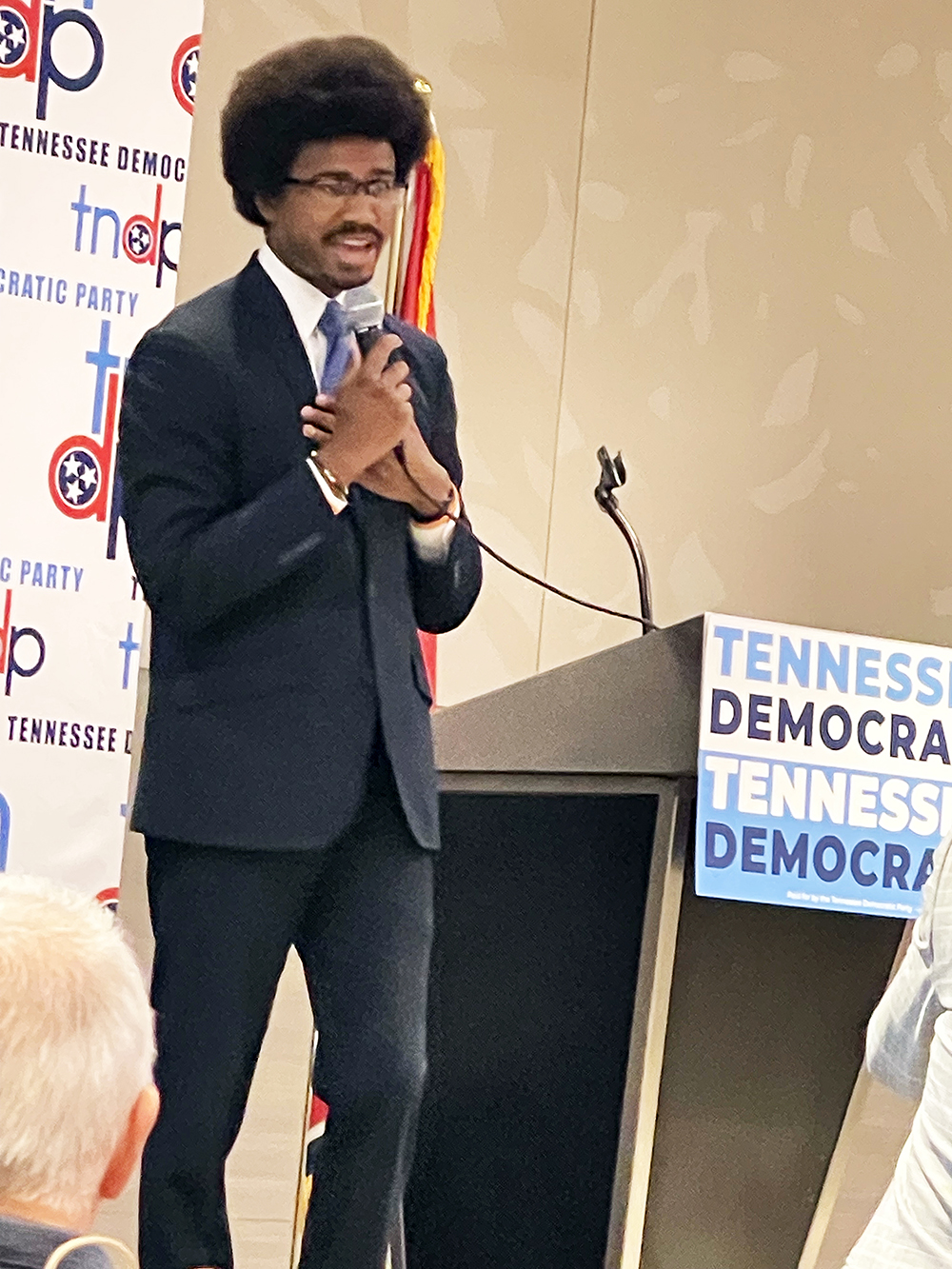
And there was Justin J. Pearson, the oracle of change to come, the galvanizing figure of the campaign to save South Memphis from a potentially hazardous oil pipeline and later a key member of the Tennessee Three, who shamed the state’s GOP leadership for its inaction on gun safety. And still later Pearson, the District 86 state representative, would become an accomplished fundraiser and all-purpose benefactor of progressive causes he deemed meritorious or necessary. And their apostle, as in the following words delivered to the Tennessee delegation on the last morning of the convention:
“We’ve got to be fired up when we have somebody who’s been convicted of 34 felonies running against the most qualified person ever to run for president of these United States, Vice President Kamala D. Harris.
“We’ve got to be fired up for such a time and moment as this, where we are seeing the rights of women being taken. We’ve got to be fired up when the gun violence epidemic continues to plague our communities because the Tennessee Firearms Association and the National Rifle Association seem to have bought our politicians into a level of complacency and cowardice that is demeaning and degrading and hurting us.
“We’ve got to be fired up when our civil rights are being attacked on every side, and this Supreme Court acts much more like a MAGA-extremist Republican Party than it should.
“We have to be fired up in this moment to preserve and protect and defend the democratic constitutional experiment that our ancestors marched for, that our ancestors died for, that our ancestors built through many dangers, toils, and snares. We’ve got to be fired up in this moment. In Tennessee and in America, we’ve got to be fired up. …
“We are Democrats. We are Democrats.”
Pearson’s oratory was confined to the Tennessee delegation. The nation at large has not yet heard him. But they will. They will.
Meanwhile, there is the following: a priceless musing on the subject at hand from my colleague on this mission and a strong right arm indeed, Chris Davis. — Jackson Baker
……………
A new audacity: Hopeful Democrats leave Chicago full of fight, but questions linger
The rebellion started, like they do, with a normal request from the back of the bus: “Can we please just get off and walk to United Center?” The question, voiced by some unidentified patriot, who only wanted to get to the Democratic National Convention in time to hear President Joe Biden speak, set off a rumble of interest. Problem was, a small but determined group of demonstrators had broken away from the bulk of Monday’s pro-Palestinian protests in Union Park and breached the DNC’s security perimeter.
The occupation was brief and peaceful but it ended in arrests, confusion, and a lengthy lockdown of the perimeter that stranded a mile-long convoy of buses, carrying DNC guests from their Downtown hotels to the venue. The stuck Democrats were getting restless, but they weren’t getting mad; they were ready to do something.

A genial police officer, assigned to guard the shuttle carrying delegates and guests to the venue in Chicago’s Near West Side neighborhood, didn’t want anybody taking any unnecessary risks: Stick to the plan and the bus will get everybody there, eventually. Ex-military and petite, the officer was wrapped in Kevlar, strapped with tactical gear, and gifted with an evident flair for theatrical performance.
She told riders they needed to stay on the bus because modern protesters wear gloves treated with caustic chemicals so they can burn cops just by grabbing them. The officer said she thought other guests from other buses had already attempted to walk and they’d gotten into fights with protesters or something like that. She said it was better for everybody to stay on a bus that wasn’t going anywhere than risk running into any of that.
Before the smiling officer could finish her cautionary fairytales, somebody in the middle of the bus found footage of the breach on TikTok. “I think I’m gonna walk,” they said. “The protesters aren’t wrong,” someone else said to a buzz of general agreement, and people began to stand up and move toward the front of the bus. By this time doors to the other stalled buses were swinging open and Democrats poured out into the street: evidence of similar, simultaneous rebellions within the stalled convoy.
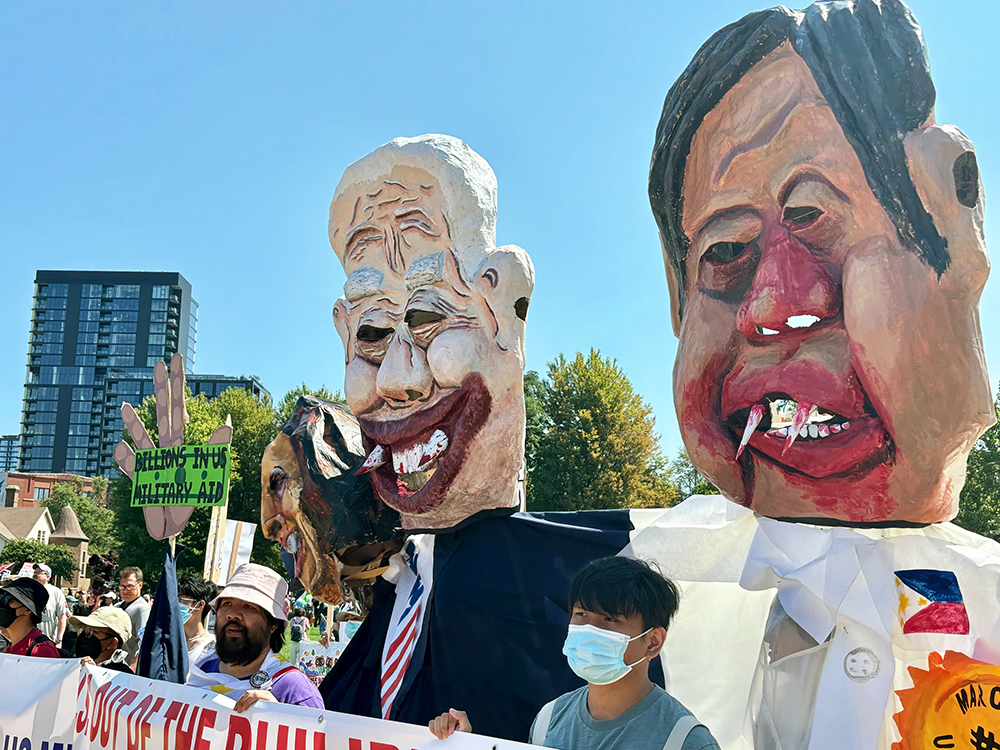
“If you really want to get off the bus, I can’t stop you,” the officer said, as Democrats started getting off the bus en masse and trudging like a well-dressed zombie horde toward the fenced perimeter. Only those with mobility issues, and people who despise walking were left to ride. They would, as the police officer assured, arrive in time to see the president speak. Three-and-a-half hours later the last of the stuck passengers disembarked at the United Center.
This feels like a metaphor for something. Maybe a metaphor for everything. In any case, I got off the bus and walked to a happy hour event hosted by Grow Progress, an organization who “use[s] science and empathy” to build more persuasive political messages. They persuaded me to enjoy several drinks, and I arrived in the arena somewhat later than the stranded bus riders, but in a much better mood.
Hillary Clinton was speaking. I could see her on the hallway monitors, as I made my way to a media-friendly space, and I could hear the crowd chanting, “Lock him up.”
It was a beautiful first day for the DNC. The sun was high and bright but a steady wind turned larger, handmade signs into sails, billowing and blowing around some of the protesters gathering in Union Park to demonstrate on behalf of the people of Palestine.
These random acts of slapstick were a stark counterpoint to an event more sincere than sizable. Organizers had predicted a turnout of 20,000 or more and a credulous media, convinced 2024 was the new 1968, transformed those hopeful numbers into big, scary headlines. But taking every lazy argument into account, 2024 only resembles 1968 the way a cloud might resemble Grandma. You can see her sweet smile and that weird growth on her neck so clearly up there in the sky, but no matter how much that Grandma-shaped cloud reminds you of a simpler, happier time, it’s a cloud and won’t be baking cookies for your birthday. By the 2 p.m. start time, hundreds of pre-printed picket signs remained spread across the lawn, uncollected. It seemed unlikely that the protest would attract even a quarter of its projected numbers.

A big reason 2024 wasn’t like 1968 is the fact that Democrats weren’t engaged in a contentious fight to choose their candidate. This certainly could have happened and even typically level-headed pundits like Ezra Klein fantasized an open or brokered convention, rationalizing that the Democratic Party could only be perfected and purified by walking through a fire certain to burn bridges and destroy alliances. But that never happened. Biden selected his Vice President Kamala Harris to succeed him, just as she would should he ever become unable to fulfill the duties of office, and to everybody’s surprise, the Democrats, a coalition party rarely able to agree on anything, got fully on board with a candidate voters hadn’t much liked the one time she ran for the nomination.
’68 was a rough ride for America. We lost MLK and Bobby Kennedy to assassins who didn’t miss. Conscripted American soldiers were dying in Vietnam, the Civil Rights Movement and American youth counterculture were in their fullest blossom, and the angry, young protesters who made their stand in Chicago truly believed the pressure they built there might determine who’d be picked to lead the Democratic ticket. Inside the convention, things were equally fraught with many delegates shouting, “No! No!” when Hubert Humphrey, who’d backed Johnson’s escalation of conflict in Vietnam, secured the party’s nomination.
’68 is also the year when Alabama Governor George Wallace, a right-wing extremist hellbent on denying either party an electoral majority, broke with the Democratic Party to make his own run at the White House, taking a big chunk of the “forget Hell!” South with him. Outside of President Biden choosing not to seek reelection and American involvement in a foreign civil war, 1968 and 2024 couldn’t be more dissimilar.
Even President Biden, in his emotional address to the DNC said, without reservation, “Those protesters out in the street have a point.” Only, he didn’t stop there, while he was ahead. “A lot of innocent people are being killed on both sides,” he concluded, glossing over the disproportionate carnage that’s led to charges of war crimes and accusations of genocide against Israel, and to normal complaints from the back of the bus.
In 2004 America held its first post-9/11 political conventions, and as it’s so frequently stated, after that infamous date, “everything changed.” Manhattan locked down when the Republican National Convention landed in town.
The National Guard greeted the bridge-and-tunnel crowd with barricades and heavier arms, while a militarized police force took to the streets, throwing up barricades faster than protesters could pour into the city. New York arrested more than 1,800 people over four days, including kids, media, and bystanders. Detainees were taken to a makeshift detention camp called Pier 57, but described as, “Guantanamo on the Hudson.” More than 300 protesters were arrested by militarized police in St. Paul, Minnesota, on the first day of the RNC in 2008, and similar numbers were arrested each subsequent day during that convention. America’s misadventures in Iraq were still on the ballot and the whole world was experiencing massive economic collapse. Protest was heavy and the police response was disproportionate.
America was still at war during the 2016 conventions, but the public wasn’t activated to the same degree. Protest diminished and, for the Democrats, it was almost exclusively an internal squabble. Although senator and presidential hopeful Bernie Sanders was giving Clinton his full-throated support, his disappointed supporters refused to let go of his lost candidacy. They turned out in force to protest by taping their mouths shut, and slamming against the perimeter barricades, where they were summarily arrested by militarized police.
I mention all of this protest history because one of the notable changes in both Milwaukee and Chicago compared to past conventions is how differently they were policed. Recent police raids clearing pro-Palestine encampments in Chicago encouraged our talking heads to dream harder about the ghost of Mayor Daley and a 1968 redux. But Chicago’s old-school head-busting police aren’t who showed up to serve and protect at the DNC. Bicycle cops and police wearing their everyday uniforms circled Union Park, where the bulk of the convention’s protests originated, to observe like an audience prepared for something other than the very worst.
Riot cops did get busy for a short time on Tuesday, when a fringe protest led by groups like Behind Enemy Lines and Samidoun (vocally supportive of Hamas’ October 7th attack against Israel) got out of hand. During that one action, police made 50 of 74 total arrests spread across four days of mostly peaceful public demonstration. It’s not a perfect example, but this is progress.
So what year is it again, if not 1968? When I heard the chants of “Lock him up,” I was rocketed back to the 2016 RNC, when Hillary’s emails were big news and chants of “Lock her up” shook Cleveland’s Rocket Mortgage Fieldhouse.
Now that Trump’s a convicted felon 34 times over, the irony is too delicious, and I wanted to enjoy watching the former senator from New York and failed presidential contender enjoy her moment. But no matter how perfectly poetic, or deserved, hearing a mob calling for the incarceration of their immediate political rival is somehow no less chilling now than it was eight years ago.
But what do I know? Nielsen ratings for the DNC’s first night demolished the RNC’s opening by a margin of 29 percent and, against the usual trend, the Democrats increased viewership each night. It’s interesting to consider how only a month ago serious commentators watching the RNC’s opening night contemplated the possibility of a once-in-a-generation political realignment favoring the GOP. It’s helpful to remember how the Democrats’ increased viewership, though in the millions, might be accounted for within the biggest blue areas and reflect no electoral college advantage whatsoever. It’s important to know that almost four times as many people tuned in to watch the DNC in 1968, when real Americans watched TV, goddammit.
Critics of the 2024 convention have astutely recognized that it was largely about feelings, and feelings aren’t a plan. True enough, but politics is made out of feelings. In recent cycles, anger, fear, hope, grief, grievance, and a host of other feelings have driven voters to the polls, why not bet on joy, for a change? Policy is key, but as Al Gore will surely tell you, if you lead with it, they put you in a lockbox.
What else can I say about the Democrats’ superb execution at the United Center that won’t have been said a thousand times already by the time anybody reads this article? Has anybody else noted how even the venue’s name seemed to announce party goals every time it was spoken? A united center is literally what I saw in Chicago. The only thing that might bring normie America together harder than the unrehearsed display of love Tim Walz’s son Gus showed for his dad is the near-universal revulsion evinced when the weirdo tried to mock him for it. The 2024 convention was a credible, joyful attempt by Democrats to reclaim ideas long ago hijacked by the right: ideas like family values, patriotism, and … well … “normal.”
In the fight against Trump, J.D. Vance, and the whole Project 2025 gang, it currently looks like the only thing still dividing Democrats is Palestine. Vice President Harris’ near-flawless closing night speech promised a different approach. With its rhetoric about Palestinian self-determination, she also promised to give Israel everything it needs in the meantime.
Activists demanding disinvestment and an arms embargo remain unconvinced and uncommitted. For them, the D-bus is stalled, all they are hearing from the cop up front is fairytales, and the threat of getting off and walking is real. So the big question going into the homestretch of this, the latest most important election of our lifetime: Will the Center hold, or will we elect Nixon? — Chris Davis
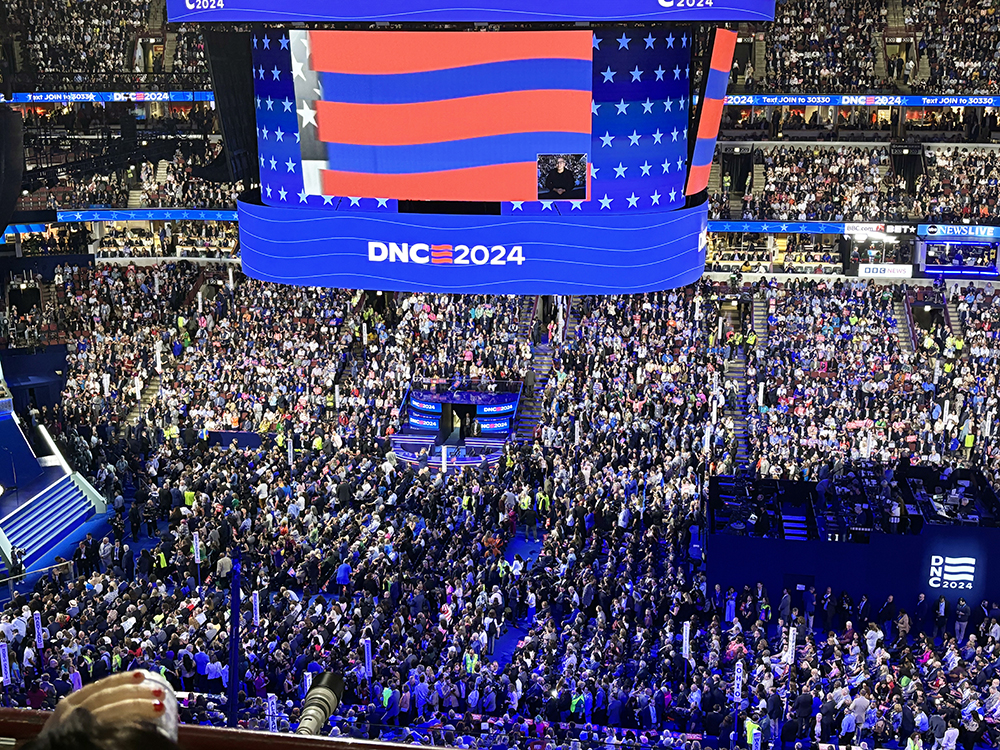
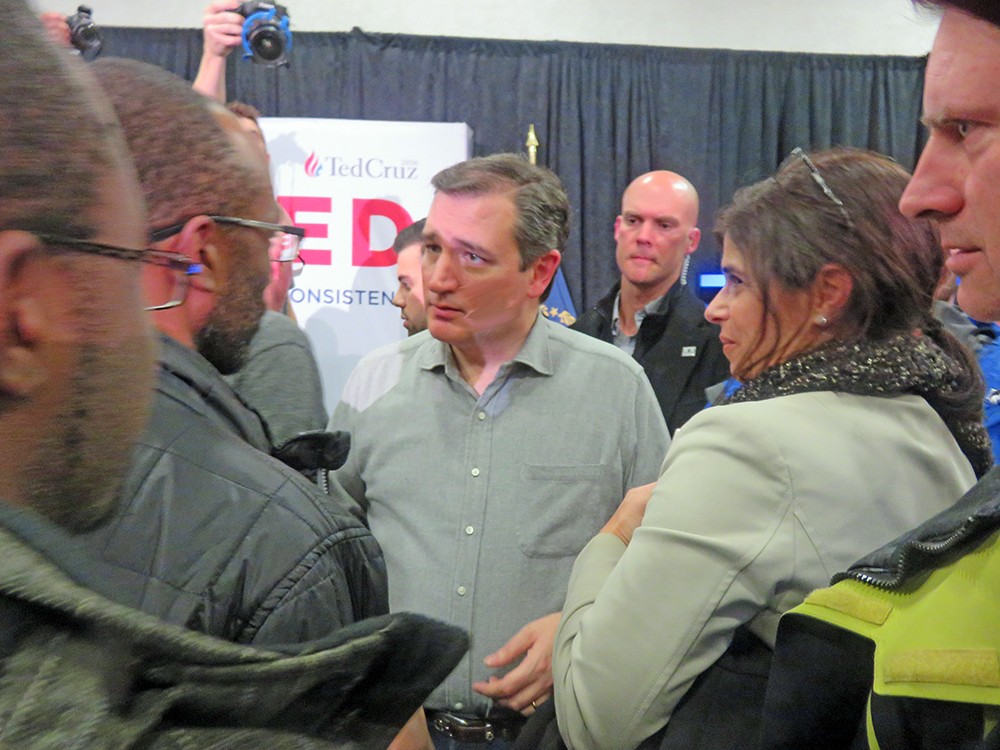 Jackson Baker
Jackson Baker 


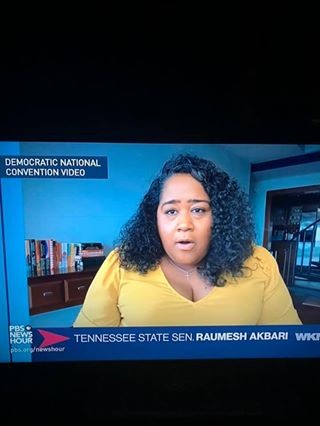


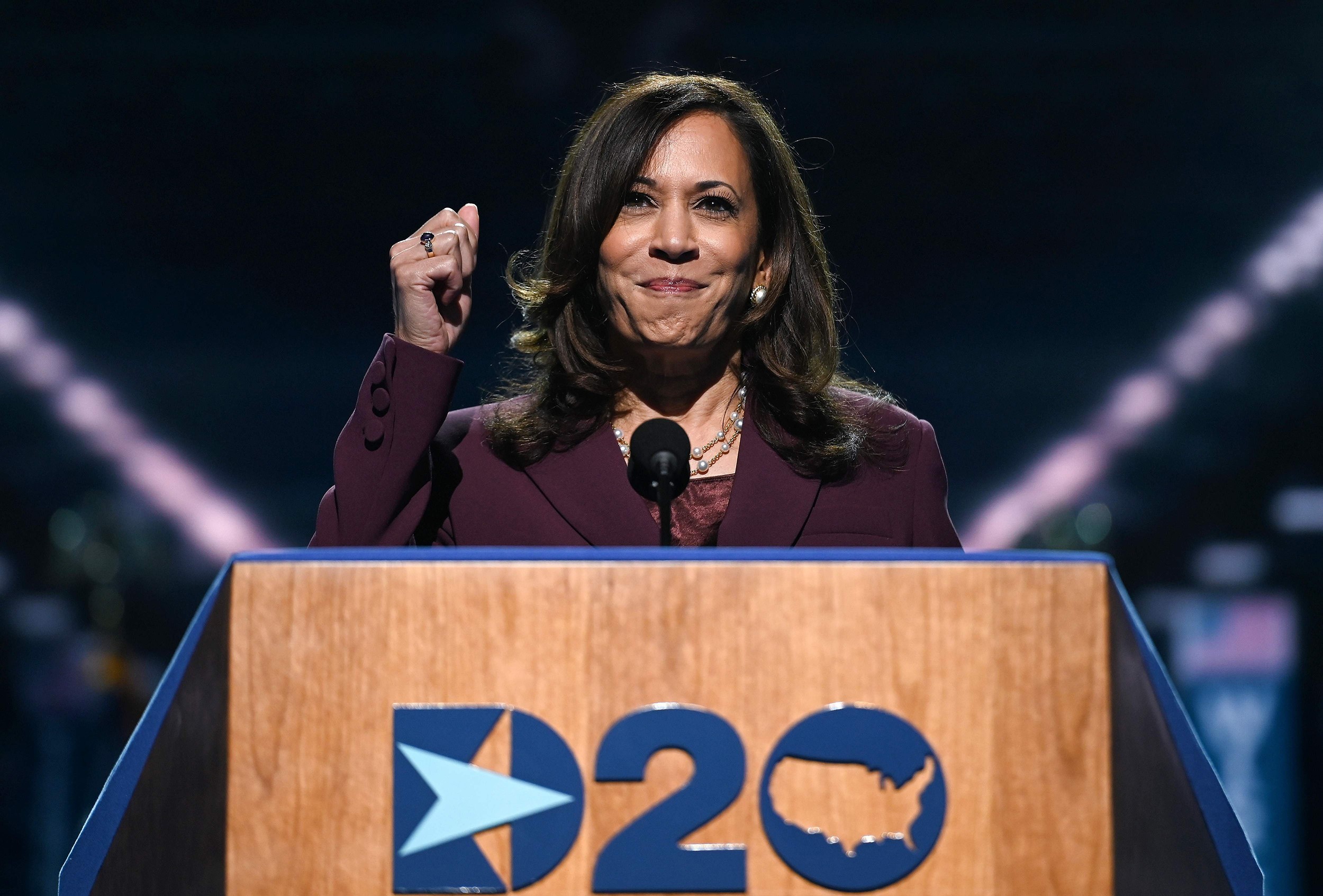



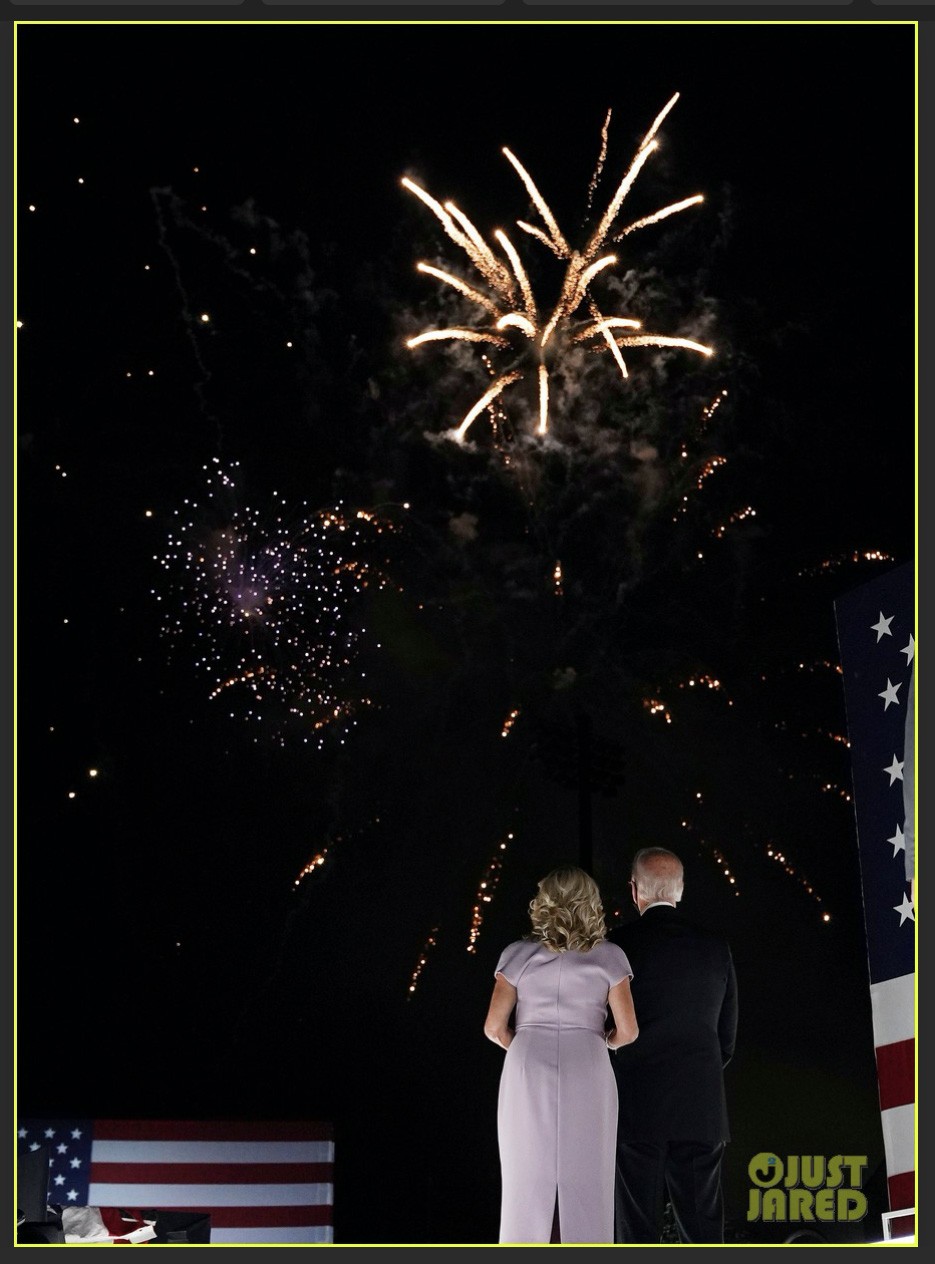
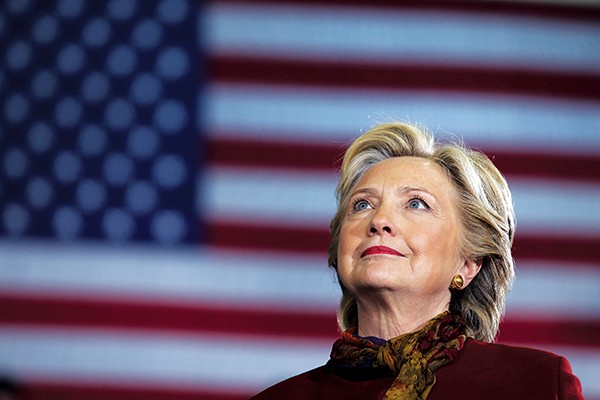 Reuters | Carlos Barria
Reuters | Carlos Barria 